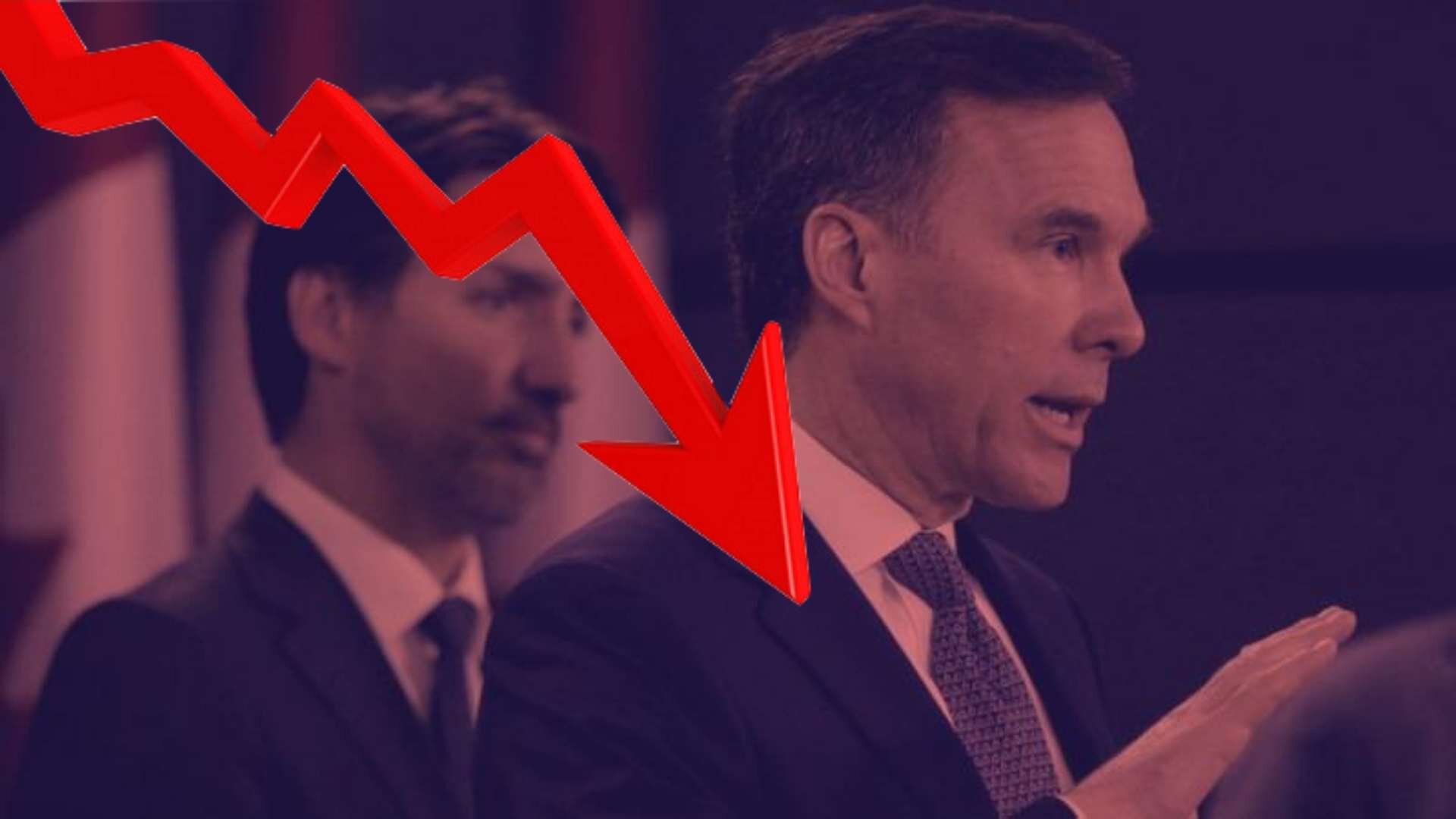Written By Wyatt Claypool, Posted on August 28, 2020

The Canadian economy just saw its deepest drop-off on record with Statistics Canada reporting a GDP decline of 38.7% between April and June.
Compared to the American economy’s second quarter, which was only down 31.7%, Canada has taken a much bigger hit from the economic devastation brought on by COVID-19 and the government restrictions put in place in response.
Not only has business investment fallen 16.2%, but one major indicator that unemployment has had a big impact on spending is household spending which fell 13.1%.
In particular household spending on non-durable goods and services cratered as many Canadians are avoiding eating at restaurants and buying more food in bulk and other goods that they may have overpaid on, like alcohol at bars or other entertainment.
CERB benefits have kept the economy going to a certain extent, but due to the fact the government is unable to simply give money away and the benefits will be taxable as well as exasperating the cycle of inflation.
Prices have fallen by 1.2% overall, but the need to print money in order to spur the economy is causing prices to not fall as much as they would have.
There are signs the economy may need to reshuffle after the economic impacts of the COVID-19 pandemic blow over as imports and exports have both greatly fallen. Imports are down 22.6% and exports are down 18.4%.
By the end of July the unemployment rate was somewhere around 10.9%, and although Canada’s economy is now in recovery due to the contraction in economic activity, business spending, and exports it may take many sectors a while before they can accommodate more employees.
Unemployment rate by month (2020)
Over the past couple of months the employment rate has increased, but one of the issues that will likely continue to cause the economy to drag is the vast majority of new jobs being in part-time work; 345,000 new part-time jobs in July compared to only 73,000 full-time jobs.
For Canada to get out of the economic rut it finds itself in, it may require major changes to economic regulations, taxation, and incentives to move more people from CERB benefits and part time work back to their full time positions to get more productive money moving around the economy again.
Wyatt is a student at Mount Royal University, where he is the president of its Campus Conservative club. In his writing, he focuses on covering provincial and federal politics, firearms regulation, and the energy sector. Wyatt has also previously written for The Post Millennial.
Very well presented. Every quote was awesome and thanks for sharing the content. Keep sharing and keep motivating others.